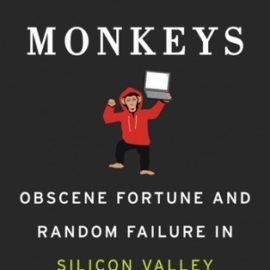Disclosure: I may earn affiliate revenue or commissions if you purchase products from links on my website. The prospect of compensation does not influence what I write about or how my posts are structured. The vast majority of articles on my website do not contain any affiliate links.
In part 1, I geeked out about what Runescape was. In part 2, I covered some of the most likely strategies for enterprising merchants. In this post, we’ll don our black hats and explore the darker side of Runescape’s markets. Wildly unregulated and with tons of naive players gunning to earn gp like the pros, this was a lucrative area for someone who knew what he was doing. At the end of the day, this was just virtual currency, and those who got scammed (myself included) became more cautious denizens of the digital world as a result.
Although I’m using “Market Making” in the title, some of these strategies don’t employ market making.
Strategies That Were Against the Rules
Spoofing
Spoofing is the practice of submitting quotes without the intention to trade. In modern markets, this is usually accompanied by quickly withdrawing the quotes to ensure you don’t actually trade. Why would someone do this? Most trading strategies try to analyze as much information about the markets as possible. If a guy goes in like Rambo and starts shooting off quotes, other participants will adjust their models accordingly. Naturally, many will find the prices desirable to trade at and will attempt to complete the trade.
In the real world, this is highly illegal but non-trivial to prove. In Runescape, this would be considered a “scam” but one that is basically impossible to get charged with. It’s just too nuanced because it doesn’t directly defraud other users. Remember, this is a game that happens to have a bustling in-game economy. There are no actual ramifications–notice how generic and ill-fitting the word “scam” is in this context.
How would this actually work? Typically, you’d wander into a somewhat active pit like the lobster area and try to get an idea of price movements and order flow. Who is trading the most volume and what are the spreads like? The spreads should be obvious from the chat bubbles above each characters head. Trade volume can be estimated by seeing how many players walk up to the merchant and seem to engage in a trade (you have to be standing on an adjacent square, facing the other player you’d like to trade). Once you have some understanding of the market, have one of your friends come in with a fair value that is higher than where the market is at–but not too high.
While your friend is publishing his quotes, the other market makers may react. They might not. If he’s known to engage in dishonest behavior, the experienced players may ignore him. If players try to trade him and he doesn’t accept their requests, they may start spamming the chat letting others know that he is not standing by his quotes (this is another major violation in the real world, but not in Runescape).
The player who is spoofing will want to boost the fair value because that will attract more attention. Anyone who trades with him will be almost definitely looking to sell, not buy. There’s no reason to buy from the guy with the highest price unless 1. You are making an insanely large order and know he is the only one who can fill you (highly unlikely) or 2. You believe prices are rising so rapidly that, by the time your transaction has completed, his will have been the cheapest price (this only happens in manias).
In the real world, spoofing is often conducted by one participant. To other traders, you are anonymized once your order hits the book. In Runescape, spoofing requires cooperation between two or more players, because your avatar is never anonymous. In the example above, people are just going to be trying to sell you lobsters at a high price. That doesn’t benefit the spoofer at all!
However, when other players join forces, it is possible to eek some profit out. Your goons can go out and create a completely illusory market. They can pretend to trade while advertising prices they aren’t actually willing to trade at. Any players trying to draw attention to this can be drawn out if your group is large enough. Then, once other players are convinced of this new fair value, a few accounts can start making markets at a slightly inflated price but with a lower bid/ask than the spoofers on the team. Bystanders won’t become too suspicious because you’ll actually be willing to trade.
This is profitable because, presumably, you’ll have bought all your stock at a price lower than the price you attempt to manipulate. Ideally, you’ll sell through your inventory quickly, because people not aware that your team is spoofing will gladly buy from you hoping they can make a fast buck.
The success of this strategy depends on the size and cohesiveness of the spoofing group as well as the adroitness of the legitimate market makers. It will only work for a certain amount of time. If people realize that the legitimate market makers are the only people actually trading both ways, your scam won’t work for long. Also, if markets aren’t being made properly, you also risk crashing the prices once people who were scammed start panic selling.
Classical Scamming / Misrepresenting Item Value
Most of the scams in Runescape in 2007 were simple. Some involved trust scams, such as players offering to craft a rare necklace if a player let them borrow the materials but then just running away with the materials he was trusted with. Others involved trading items that, if looking quickly at the trade window, looked very similar to other items that were much more valuable. These scams were against the rules of the game and, if you were reported with suspicious chat messages accompanying your trade, Jagex punished players harshly, sometimes even muting them.
Another class of scam, which really wasn’t a scam at all, was paying in items rather than cash. This was very popular in W2 Falador. Partially, this was because some players didn’t have the cash required to make certain purchases. More astute player took advantage of peoples’ willingness to trade using items and attempted to make money by trading using overvalued items. It’s important to note that naive users were indeed defrauded and left with less value than they expected, nobody was getting banned for doing this.
Like many scams in the real world, making consistent income required casting a wide net. Not only did one have to cast a wide net, but you had to be totally sure of the items you were trading. Also, W2 Falador mimicked a predator-prey biosphere in that as some players gained gp and knowledge, novices would often get taken advantage of and would leave the market for extended periods of time while they rebuilt their wealth. At times, there were too many sharks in the tank, so to speak.
Two items used for the value/illusion scam would be the Warrior Ring and Berserker Ring. The Warrior Ring was worth 400k gp, while the Berserker ring sold for nearly 2M gp. Today, the Warrior Ring is considered junk at just 83k gp, while the Berserker goes for nearly 4M gp. Back in 2007, many players knew that one of the rings was worth a lot, but few players who wandered into W2 Falador for the first time knew which one it was.
A player with a stock of Warrior Rings would often trade inexperienced-looking sellers who were peddling just one unit of high-value armor and weapons, for example, me selling my Abyssal Whip (approximately 2M gp). The buyer would offer some cash (500k) and the Warrior Ring. The seller may be enticed to accept it, associating the ring with its more valuable counterpart. The result would be that the scammer would double his money and the dumb seller would be left 1M poorer. This actually happened to me during one of my first ventures into World 2.
This strategy worked well, and it exists in a grey area. Later in my Runescape career, I made a lot of money doing this, but there was always an element of luck involved. After you made a couple million from this, it would be very hard to scale, and for that reason, it is mostly a fun thing people would do to get a feel for how experienced the sellers in each market were.
Cornering the Market
There is a finite amount of stuff in the world. The reason that markets rarely get cornered is not only because it’s illegal to do, but also because it is incredibly hard to pull off. Usually, when people talk about cornering markets, they’re talking about buying futures contracts in commodities. That’s a bit of an advanced topic, but all you need to know is that this isn’t as easily accomplished in the virtual world of Runescape.
Most items enter the game at incomprehensible speed. Daily trading volumes are staggering. For example, Sharks may trade for 730 gp each. According to the Grand Exchange database, roughly 8,000,000 traded yesterday. The total value traded was 5.840 billion gold pieces. In USD (at $.5 per 1M gp), that’s nearly $3000! On top of that, tons of new sharks enter the game every day. Sure, a whale of a trader could bid prices up, but he would probably lose just as much if he triggered a panic once he started selling.
The best way to corner the market would be to secretly, gradually amass holdings of a rare item and then take to the trading pit. Runescape in 2007 did have a few “discontinued” items of which there were a finite amount in the game. However, even way back in 2007, most were extremely expensive. Because there were no trading records back then and the markets were relatively illiquid, nobody was able to estimate how many were in the game. To give you a better idea of how much of a feat it would be to corner a market, in the history of the game, there has never been a documented instance of someone effectively manipulating the prices of discontinued items!
One counterexample is that, around the year 2009 once the Grand Exchange was released, “merchanting clans” regularly did corner markets in various low-volume items. Due to how quickly new items enter the game, these corners almost always turned into pump and dump schemes. I made and lost fortunes participating in such events. However, I maintain that there were no documented instances of market cornering before the Grand Exchange was released.
Botting
In the ruins of unofficial Runescape forums circa 2007, I found some mentions of people who had designed bots to serve as automated traders. In other words, a program would take over your avatar, calculate fair value based on market activity, make markets and only accept cash trades. In my opinion, this is a total sham.
I know for a fact that, around the year 2017, there were staking bots that only accepted duels that had sufficient expected value, based on a high scores lookup of an opponent. To imagine that ten years earlier, people were designing trading systems that profited in the mass hysteria of W2 Falador, or any location for that matter, is just too farfetched.
To be clear, if other players had to stand behind their bids and offers, this type of bot would have potential. As long as other people were being dishonest and trying to make money by any means necessary, the bots would not be able to consistently make money.
Though Runescape’s golden age is long passed, I hope that my research, recollections, and opinions can be of use to others. I had a great time writing this. Rest assured, I’m still pondering the what-ifs just as relentlessly.




